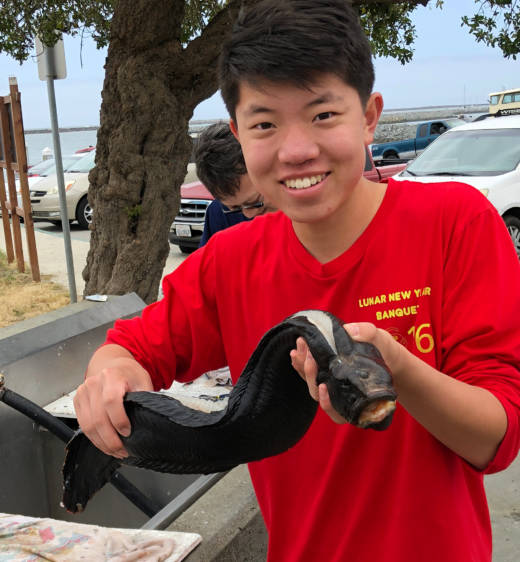Future passions are often formed by childhood experiences. For Joshua Chan, a particular kind of fishing has spawned concern for the marine environment.
My clumsy, third-grade legs grew tired as I bounced from one six-foot rock to the next, peering through the crevices of the Half Moon Bay jetty in search of an unsuspecting fish. Just then, the stranger next to me, a middle-aged man with a baseball cap and worn-out jeans, seemed unfazed as he reeled in another eel, the twentieth one he had caught that morning. I impatiently tugged my fishing rod out of the water before hurling it near my empty fish bucket in a fit of frustration. Out of a sudden urge, I asked him what secret talents he possessed. He smiled, and for the next two hours, taught me how to rig up a wooden stick with a string and hook and search for the crevices inhabited by hungry eels. He called this “poke pole fishing.”
For years, my dad and I would meet Rob at the jetty and other fellow poke pole enthusiasts. Often, he would look up and point out the humpbacks soaring over the horizon and the dolphins prancing along the waves. On some days, he invited us to his home adorned with abalone shells, where he prepared a hearty meal of fresh caught eel fillets served with his garden vegetables. It became obvious that the ocean was his home.
Over the years, the water we fished on was noticeably muddier. Oil pools from the boat formed around the rocks that we fished on, and plastic bottles and trash floated in clusters. Without saying a word, Rob looked on and wiped his brow in disbelief. He was gradually seeing his home intruded upon and destroyed.
This year, as my high school’s community service representative, I was tasked to create an service event. Instinctually, I thought of Rob and our poke pole fishing community and arranged a “Coastal Cleanup”, where we picked up trash and recorded data while raising awareness about the effect of pollution on our marine ecosystem.
